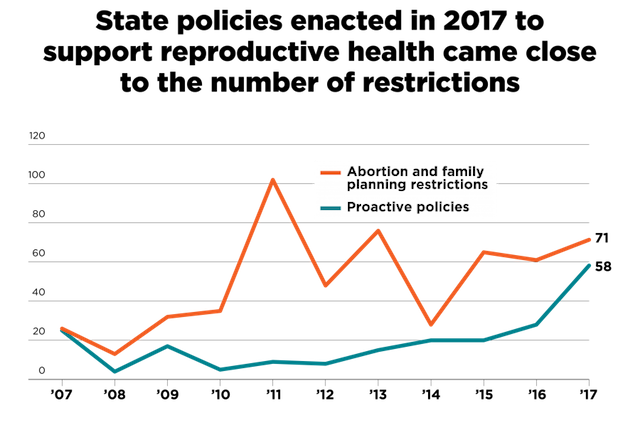As gridlock and partisan infighting kept much major federal legislation from passing in 2017, significant attention and policy efforts went to state measures. As a result, a historic number of laws in support of reproductive rights passed last year. According to a Guttmacher Institute analysis released yesterday (January 2), 21 states adopted 58 proactive measures, a sharp increase from the 28 enacted in 2016. The 2017 measures included 12 on abortion, 35 on contraception and 11 on issues such as sex education.
These state policies can have a major impact on women seeking access to abortion and contraception in those states, particularly those who rely on public funding like Medicaid. Women of color are disproportionately impacted because they are more likely to be using Medicaid and more likely to be low-income.
{{image:3}}
The proactive measures, though, were accompanied by even more laws restricting access to abortion and contraception. In 2017, 19 states adopted 63 new restrictions on abortion rights and access. Also, Iowa, Kentucky and South Carolina moved to limit public funding for family-planning programs and providers. This number was down from a high of more than 100 in 2011.
{{image:2}}
Still, as the infographic above shows, the overall climate towards reproductive rights is still quite hostile, particularly in Southern and Midwestern states. It’s likely that similar policy efforts will continue in 2018, further entrenching a dynamic in which geography determines access to reproductive rights.
